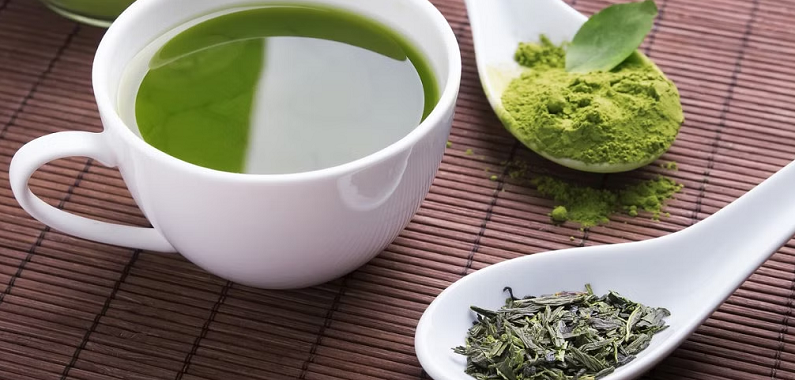
In the quest for improved cognitive health and emotional balance, nootropics – substances known for their brain-boosting properties – have gained significant attention. Among these, L-Theanine, a naturally occurring amino acid, stands out for its unique ability to harmonize mood and enhance emotional wellbeing. Found predominantly in green tea, L-Theanine has been the subject of various studies highlighting its calming effects on the mind, without the sedative qualities often associated with relaxation aids. From its intriguing origins and biochemical properties to its subtle yet profound impact on the brain’s neurotransmitters, L-Theanine acts as a gentle balancer of our mental state.
Contents
Introduction to L-Theanine and Emotional Wellbeing
In our fast-paced world, where stress and anxiety are common companions, finding natural and effective ways to maintain cognitive health and emotional balance is more important than ever. Among the many approaches available, nootropics – substances that can positively impact mental functions – have emerged as a popular choice. In this context, L-Theanine, a relatively lesser-known but remarkably potent compound, offers a beacon of hope for those seeking to balance their mood and emotional wellbeing.
Definition of Nootropics
Nootropics, often referred to as “smart drugs” or “cognitive enhancers,” are compounds that improve mental functions such as memory, creativity, motivation, and attention. These substances range from naturally occurring amino acids, like L-Theanine, to synthetic compounds. Their primary allure lies in their ability to enhance cognitive abilities, potentially improving quality of life, especially for individuals dealing with cognitive stressors or mood imbalances.
Overview of L-Theanine
L-Theanine, a naturally occurring amino acid found primarily in tea leaves, is renowned for its calming effects on the mind. Unlike many other mood-enhancing substances, L-Theanine achieves relaxation without sedation, making it an intriguing subject for those interested in nootropics. This unique quality has positioned L-Theanine not just as a dietary supplement, but as a subject of increasing interest in the scientific community.
Importance of Mood and Emotional Wellbeing
Mood and emotional wellbeing are fundamental to our overall health. They influence our daily interactions, decision-making processes, and physical health. In recent years, the importance of maintaining a balanced emotional state has been more widely recognized, leading to a surge in interest in natural supplements like L-Theanine. By understanding and harnessing the properties of such compounds, we can potentially improve our cognitive resilience and emotional stability [1].

L-Theanine and Mood Regulation
L-Theanine has garnered attention in the world of nootropics primarily for its mood-regulating properties. Understanding how this amino acid influences our mental state is crucial for appreciating its value in managing emotional health.
L-Theanine Influence on Neurotransmitters
Neurotransmitters are the brain’s chemical messengers; they play a vital role in shaping our mood and emotional responses. L-Theanine has a unique ability to affect these neurotransmitters, particularly those associated with relaxation and stress relief. It’s known to increase levels of GABA (gamma-aminobutyric acid), serotonin, and dopamine – neurotransmitters that are pivotal in regulating mood, relaxation, and well-being. By modulating these chemicals, L-Theanine helps create a sense of calm and balance, without the drowsiness often associated with other calming agents [2].
Impact of L-Theanine on Stress and Anxiety Levels
Stress and anxiety are common challenges in modern life, often leading to a range of physical and mental health issues. L-Theanine’s impact on the brain extends to its ability to mitigate these states. Clinical studies have shown that L-Theanine can reduce physiological responses to stress, such as elevated heart rate and blood pressure. This effect is not just psychological but also physiological, making L-Theanine a compelling option for those seeking natural ways to manage stress and anxiety.
Studies and Research Findings Involving L-Theanine and Mood
The mood-regulating effects of L-Theanine are not just anecdotal; they are backed by scientific research. Several studies have demonstrated its efficacy in promoting relaxation without sedation, improving symptoms of anxiety, and enhancing overall emotional well-being.
For instance, a study published in the Journal of Clinical Psychiatry found that L-Theanine reduced anxiety and improved symptoms in people with schizophrenia and schizoaffective disorder. Another study highlighted its potential in improving sleep quality, not by acting as a sedative, but by promoting relaxation [3].
L-Theanine and Emotional Wellbeing
Beyond its role in mood regulation, L-Theanine has profound implications for overall emotional wellbeing. This section delves into how this amino acid can enhance our emotional health, contributing to a more balanced and fulfilling life.
L-Theanine Enhances Relaxation and Calmness
L-Theanine’s most notable effect is its ability to induce a state of calm and relaxation without the lethargy typically associated with other calming agents. This is particularly beneficial for individuals who experience high levels of stress or who find it difficult to unwind.
By promoting a relaxed but alert state, L-Theanine helps in maintaining focus and productivity while reducing feelings of anxiousness. This unique characteristic makes it a favored choice for those seeking to manage daily stress while maintaining mental clarity.
L-Theanine Effects on Sleep Patterns
Sleep is integral to emotional wellbeing, and disruptions in sleep can significantly impact our mood and stress levels. L-Theanine has been found to positively affect sleep quality, not by acting as a traditional sedative, but rather by promoting relaxation.
This can lead to more restful sleep and a better overall sleep cycle. For individuals struggling with sleep disturbances, L-Theanine can be a gentle yet effective aid, helping to establish a more regular sleep pattern, which in turn contributes to better emotional health [4].
Role of L-Theanine in Cognitive Health
The benefits of L-Theanine extend to cognitive health as well. By reducing stress and improving sleep, it indirectly supports cognitive functions like memory, focus, and problem-solving. Furthermore, the calming effect of L-Theanine can aid in reducing the cognitive impairments often associated with anxiety and stress. This makes it an important tool not only for those looking to improve their emotional wellbeing but also for individuals seeking to maintain or enhance their cognitive abilities.

Comparing L-Theanine with Other Nootropics
While L-Theanine is a remarkable nootropic in its own right, understanding how it compares to other cognitive enhancers provides a broader perspective on its unique place in the realm of brain health supplements.
Differences in Mechanisms and Effects of L-Theanine and Other Nootropics
L-Theanine distinguishes itself from other nootropics through its specific mechanisms of action and the effects it produces. Unlike stimulant-based nootropics that enhance cognition by increasing alertness and energy (such as caffeine or modafinil), L-Theanine promotes relaxation without sedation [5].
This contrasts with other substances that may enhance focus or productivity but can also lead to increased stress or agitation. L-Theanine’s ability to increase neurotransmitters like GABA, serotonin, and dopamine contributes to its unique calming effect, making it an ideal choice for those seeking mental clarity along with emotional balance.
Synergistic Effects of L-Theanine with Other Supplements
One of the intriguing aspects of L-Theanine is its potential to work synergistically with other nootropics and supplements. For instance, when combined with caffeine, L-Theanine can help mitigate some of the jittery side effects often associated with caffeine consumption, while enhancing focus and alertness. This synergistic relationship extends to other supplements as well, where L-Theanine can complement and enhance their effects, leading to more balanced and effective nootropic stacks.
Safety and Side Effects of L-Theanine
In terms of safety and side effects, L-Theanine is often preferred over other nootropics due to its low risk profile. While many cognitive enhancers may have side effects such as insomnia, increased heart rate, or nervousness, L-Theanine is generally well-tolerated and devoid of severe side effects. This makes it a safer option for long-term use, especially for those who are sensitive to more stimulating nootropics or who are concerned about potential adverse effects.
References
[1] Effects of L-Theanine Administration on Stress-Related Symptoms and Cognitive Functions in Healthy Adults
[2] L-Theanine for Different Mental Health Problems
[3] L-Theanine: Purported Benefits, Side Effects & More
[4] What to Know About L-Theanine
[5] L-Theanine’s Effect on Sleep, ADHD, and Memory

